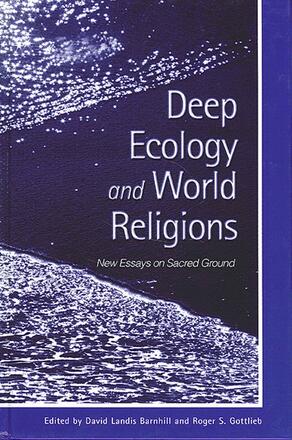
Deep Ecology and World Religions
New Essays on Sacred Ground
Alternative formats available from:
Parallels and contrasts values from world religions and those proposed by the environmental perspective of deep ecology.
Description
Bringing together thirteen new essays on the important relationship between traditional world spirituality and the contemporary environmental perspective of deep ecology, this landmark book explores parallels and contrasts between religious values and those proposed by deep ecology. In examining how deep ecologists and the various religious traditions can both learn from and critique one another, the following traditions are considered: indigenous cultures, Hinduism, Buddhism, Taoism, Confucianism, Judaism, Catholicism, Islam, Protestantism, Christian ecofeminism, and New Age spirituality.
David Landis Barnhill is Director of Interdisciplinary Studies and Associate Professor of Intercultural and Religious Studies at Guilford College. He is the author of At Home on the Earth: Becoming Native to Our Place: A Multicultural Anthology. Roger S. Gottlieb is Professor of Philosophy at Worcester Polytechnic Institute. His most recent book is A Spirituality of Resistance: Finding a Peaceful Heart and Protecting the Earth.
Reviews
"Barnhill and Gottlieb excel at assembling disparate voices from a variety of world traditions, from Hinduism and Confucianism to Christian ecofeminism and New Age spirituality, and they present their concerns in a straightforward manner … a satisfying discussion that showcases the complexities of thoughtful human engagement with our natural environment. " — Library Journal
"One of the most exciting new developments in the general field of environmental studies is a dialogue between religion and ecology. It also promises to be one of the most efficacious, because practically the only thing that can effectively resist the juggernaut of amoral consumerism is an environmental ethic grounded in religious belief. This volume contributes to the effort to develop an environmental consciousness—and conscience—from the conceptual resources of several world religions and indigenous traditions of thought. The editors have here assembled some of the most celebrated and authoritative voices in this timely new domain of discourse. " — J. Baird Callicott, author of Beyond the Land Ethic: More Essays in Environmental Philosophy
"Using the lens of deep ecology, the authors discuss values and practices of religious traditions that engage deep ecology principles, providing both critique and reflection that sharpen the conversation. These writers affirm that how we treat nature is a moral question, calling for committed engagement from a thoughtful and heartfelt place. Inspired by the increasing spiritual and ethical sensibilities awakened by the eco-crisis, this book extends the call to act openly, honestly, critically, contritely, intelligently, and joyously in exploring religious response to the fundamental ethics of deep ecology. " — Stephanie Kaza, coeditor of Dharma Rain: Sources of Buddhist Environmentalism